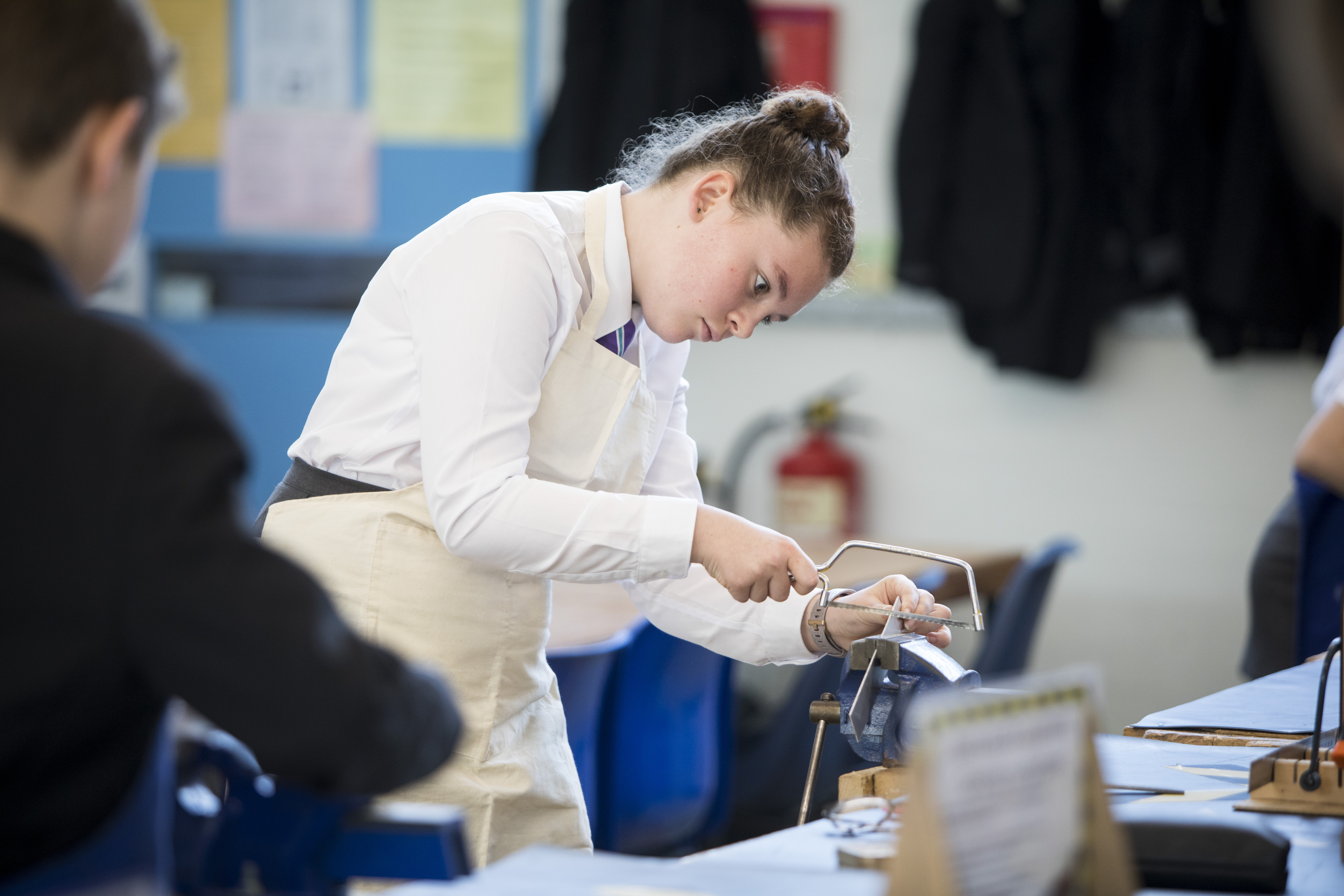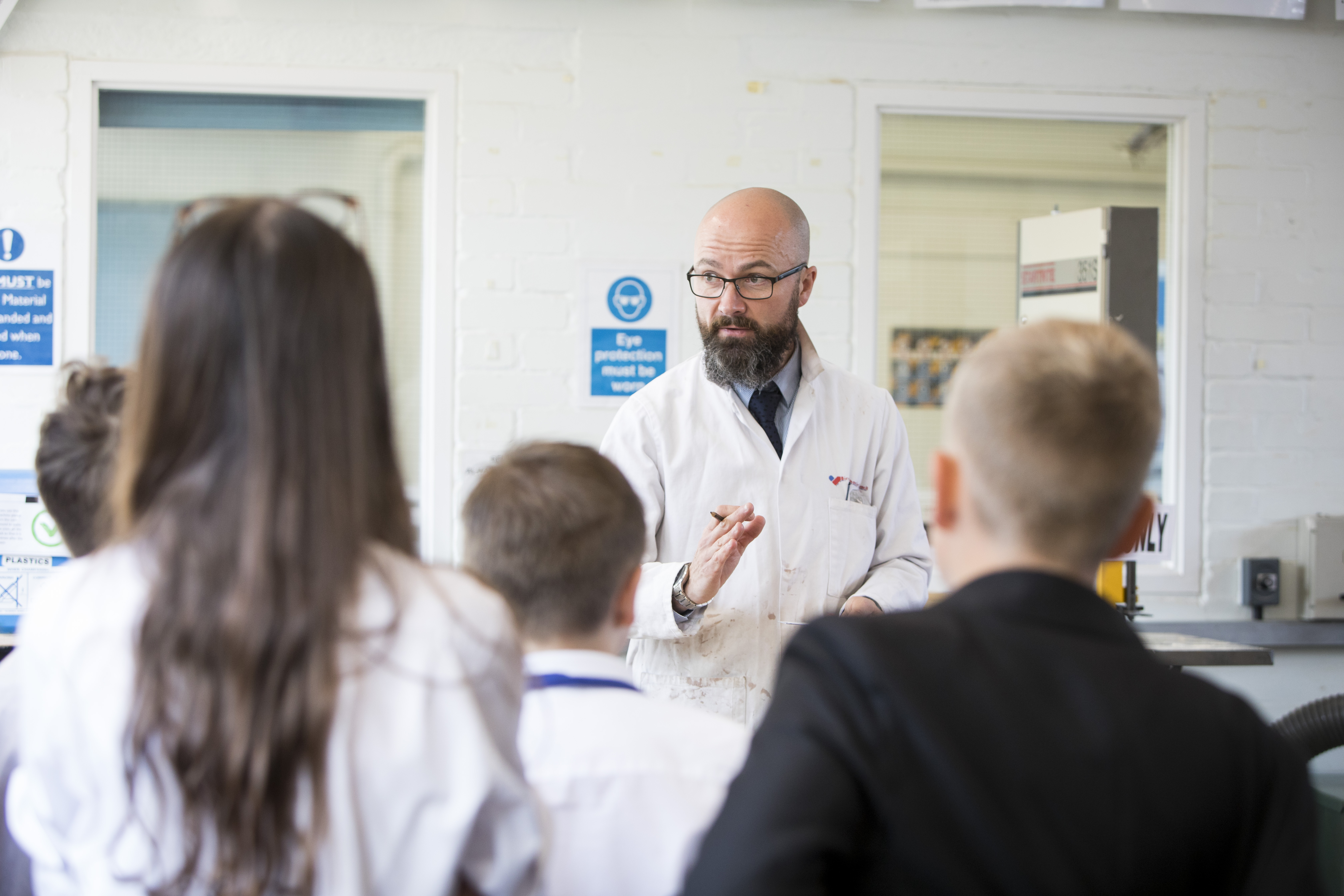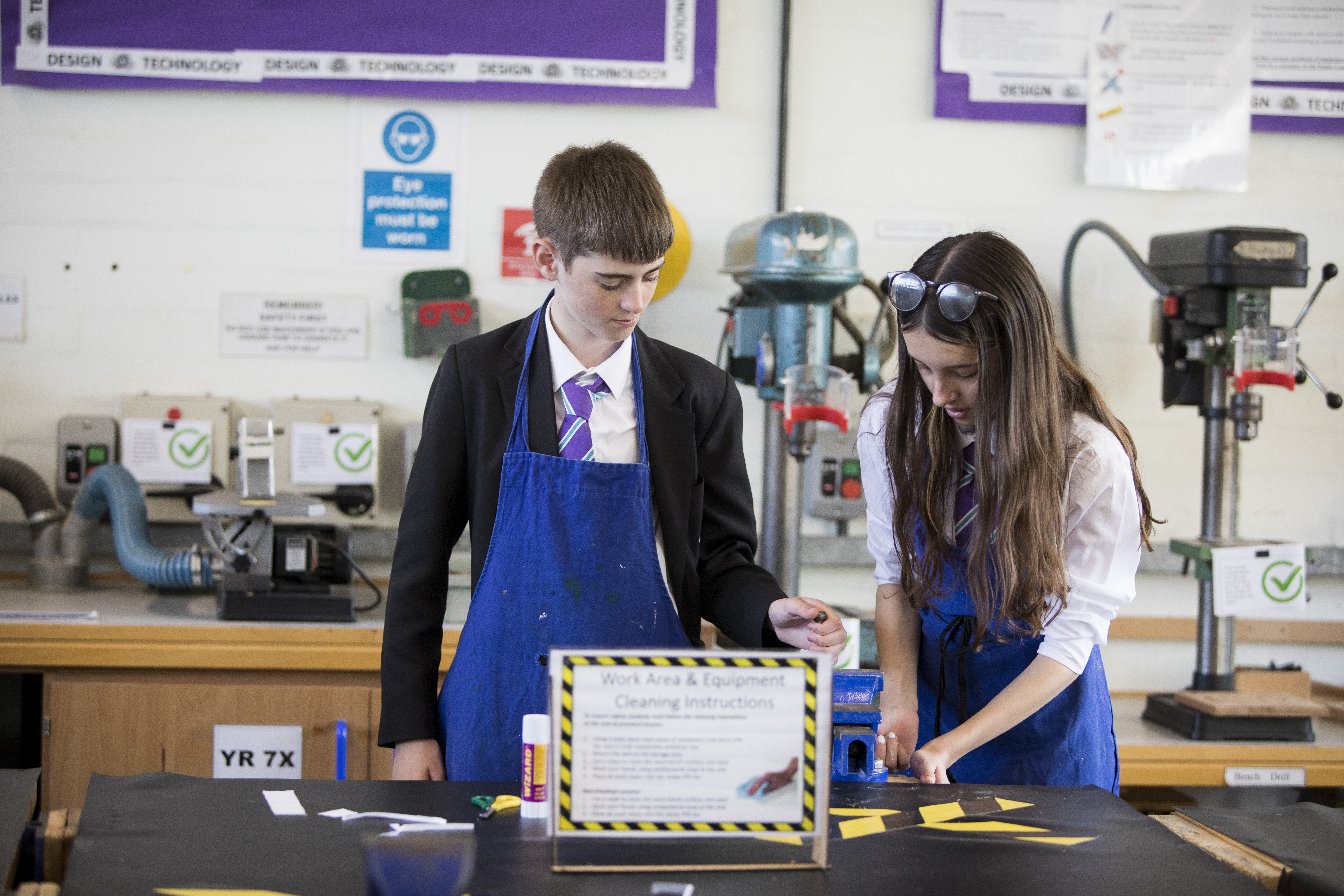About Our Subject
D&T Department Curriculum Aims
Design and technology at Oldbury Wells are an inspiring, stimulating, and practical subject. Using creativity and imagination, pupils design and make products through an iterative process that solve real and relevant problems within a variety of contexts, considering their own and others’ needs, wants, and values. They acquire a broad range of subject knowledge and draw on disciplines such as mathematics, engineering, computing, and art. Pupils learn how to take risks, becoming resourceful, innovative, enterprising and capable citizens. Through the evaluation of past and present design and technology, they develop a critical understanding of its impact on daily life and the wider world. High-quality design and technology education makes an essential contribution to the creativity, culture, wealth and well-being of the nation.
Our aims for the pupils:
- build and apply a repertoire of knowledge, understanding and skills in order to design and make high-quality prototypes and products for a wide range of users
- Understand and develop the iterative design and make process.
- develop the creative, technical and practical expertise needed to perform everyday tasks confidently and to participate successfully in an increasingly technological world
- understand and apply the principles of nutrition and learn how to cook.
The field of Product Design is a varied one. Everything that is used and consumed by the public has been designed and developed. As young designers our pupils are encouraged to design and make products that involves inclusive successful design.
Key Stage 3
Our key stage 3 is the building blocks for successful designers of the future. We plan for individuals to experience a wide range of ‘design and make’ fields developing an extensive range of skills. This then allows them to have an informed choice when opting for their GCSE’s.
All KS3 students will ‘design and make’ using Textiles, Electronics and Resistant Materials. Each area of our technology department has an excellent provision of equipment and materials enabling the pupils to design and develop products in both a craft and industrial way. Typical projects will relate to a students’ daily life making products such as headwear and lighting to name just a few.
KS4 Design (focus in Resistant Materials)
Specification: AQA Design & Technology- Focus on Resistant materials:
The course includes work on:
Core Technical Principles:
- New and emerging technologies
- Energy storage and generation
- Modern and smart materials
- Systems approach to designing
- Mechanical devices
- Materials and their working properties.
In Year 10 students will:
The initial year will be spent working with a range of materials; Resistant, Graphic products and Textiles to allow the students to develop a broad knowledge of Design and enable them to produce projects that encompass the subject as a whole. Students will however complete projects that are Resistant materials led.
- Produce two focused practical tasks focussing on the use of wood, and plastic.
- Produce one Design and make project in preparation for the Non Exam Assessment.
- Develop their knowledge and understanding of the subject through structured theory lessons.
- Use CAD/CAM in the production of their products.
- Use a range of graphic techniques and ICT to generate & communicate design proposals.
- Develop an understanding of environmental and sustainability issues.
In Year 11 students will:
- Produce a Non Exam Design and Make Assessment (maximum of 50 hours lesson time) – this will be 50% towards their GCSE.
- Continue developing their knowledge and understanding through structured theory lessons.
- Prepare for the final examination. 50% towards their GCSE
This course develops skills in:
- Development of a range of making skills in wood, metal and plastic.
- Develop an understanding of materials and construction techniques.
- Use ICT and manual graphic skills effectively and appropriately.
- Develop creative thinking.
- Develop technological awareness using equipment such as the laser cutter and the CNC lathe.
Develop communication skills and promote resourcefulness and discrimination
KS4 Design (focus on Textiles)
Specification: Design & Technology- Focus on Textiles:
This course includes work on:
Core Technical Principles:
- New and emerging technologies
- Energy storage and generation
- Modern and smart materials
- Systems approach to designing
- Mechanical devices
- Materials and their working properties.
In Year 10 you will:
The year will be spent working with a range of materials; Both Textiles, Graphic products and Resistant to allow the students to develop a broad knowledge of Design and enable them to produce projects that encompass the subject. Students will however complete projects that are Textiles led.
- Produce two industrially inspired projects in Year 10 which will allow students to develop their practical skills, knowledge of materials and techniques as well as encouraging creativity and innovation.
- Increase their knowledge and understanding of the subject through structured theory lessons and tests.
- Use CAD/CAM in the production of their products.
- Develop a range of design skills and ICT to generate & communicate design proposals.
In Year 11 you will:
- Produce a Non-Exam Design and Make Assessment (maximum of 45 hours lesson time) worth 50% of the GCSE
- Continue developing their knowledge and understanding through structured theory lessons and tests.
- Prepare for the final 2 hour examination worth 50% of the GCSE
This course develops skills in:
- Develop designing skills which will enable students to demonstrate originality and creativity.
- Develop making skills which will enable students to show accuracy and quality.
- Develop an understanding of a variety of materials and construction techniques.
- Use ICT skills effectively and appropriately to communicate their ideas.
- Develop innovative thinking.
- Develop technological awareness using equipment such as computerised sewing machines, fashion drawing/simulation packages.
- Develop communication skills and promote resourcefulness and discrimination.
KS5 Product design:
Exam Board: AQA
To enable students to seamlessly travel from GCSE to Advanced Level, we offer the AQA Advanced level specification. This specification is designed to offer students the opportunity to study, design iteratively and realise prototype solutions closely linked to the real world of product manufacture in a range of material areas. Recognising the routes that are pursued at GCSE, this course provides students with the opportunity to continue their studies within product materials and the areas it encompasses. The course includes understanding environmental issues, manufacturing, marketing and materials and the application of a wide variety of skills and techniques necessary to be successful at Product Design.
Students are encouraged to:
- independently develop their own problem areas within design and follow an iterative approach to design, by, designing, testing and trial working models and prototypes.
- work innovatively.
- develop an understanding of contemporary design and technological practices and consider the uses and effects of new technologies and modern materials.
Exam
Paper 1
Technical principles
Written exam: 2 hours and 30 minutes
120 marks
30% of A-level
Questions are a mixture of short answer and extended response questions.
Exam
Paper 2
Designing and making principles
Written exam: 1 hour and 30 minutes
80 marks
20% of A-level
Questions are a mixture of short answer and extended response questions.
Non-exam assessment (NEA)
It is a Substantial design and make project where there is a practical application of technical principles, designing and making principles. Where it is evidenced through a written or digital design portfolio with photographic evidence of final prototype.
100 marks
50% of A-level
PROGRESSION from D&T
Many of our students have been extremely successful where they have completed further studies in higher education or through a more vocational pathway including careers in Design, Technology, Fashion, Engineering, Construction and Architecture amongst others.
Our students have gone on to work in the Fashion industry from Catwalk status to high street stores, Engineers, Architects and many more. However, with the creative skills taught many students have gone on to be successful in their fields by being excellent problem solvers.










